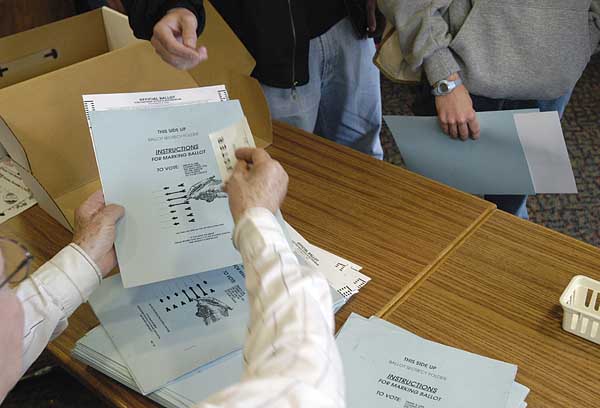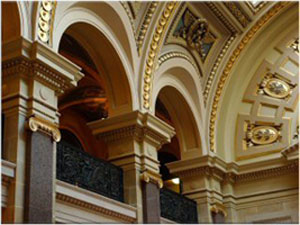 The Legislature remains in session until April 3, and both houses have been meeting to wrap up pending legislation before the summer recess.
The Legislature remains in session until April 3, and both houses have been meeting to wrap up pending legislation before the summer recess.
Legislation (SB 578 and AB 729) allowing classified research on University of Wisconsin System campuses passed the assembly last month and public hearing was held in the senate earlier this week. A vote on the bill has not been scheduled. PROFS is registered in favor of the bill and offered this statement to the Senate Universities and Technical Colleges committee on Wednesday.
Several controversial proposals are under discussion:
Senate Bill 655, legislation that would make many changes to campaign finance and lobbying laws. The bill would lengthen the amount of time each year that lobbyist can make political contributions and allow lobbyists to deliver campaign contributions to legislators anytime during the year.
Senate Bill 619, legislation that would stop the implementation of Common Core Standards in the state.
Assembly Bill 750, legislation that would forbid local living wage ordinances when state and federal money is used for workers’ salaries. Dane County, Madison, and Milwaukee all have living wage ordinances. The bill would also bar residency requirements for workers on public works projects.
The Assembly Republican caucus met earlier this week to remove Representative Bill Kraemer of Waukesha from his post as Majority Leader after allegations of misconduct became public. The caucus selected Representative Pat Strachota (R-West Bend) to serve as majority leader, the first woman to hold the position in Wisconsin.
Several legislators have announced they will retire at the end of their term or pursue higher office. The following senators have announced they will retire at the end of their term:
- Senator Tim Cullen (D-Janesville)
- Senator Bob Jauch (D-Poplar)
- Senator Dale Schultz (R-Richland Center)
The following assembly members will not run again:
- Rep. Penny Bernard-Schaber (D-Appleton)
- Rep. Janet Bewley (D-Ashland)
- Rep. Garey Bies (R-Sister Bay)
- Rep. Fred Clark (D-Baraboo)
- Rep. John Klenke (R-Green Bay)
- Rep. Dan LeMahieu (R-Cascade)
- Rep. Howard Marklein (R-Spring Green)
- Rep. Jon Richards (D-Milwaukee)
- Rep. Janis Ringhand (D-Evansville)
- Rep. Pat Strachota (R-West Bend)
- Rep. Mary Williams (R-Medford)
Bernard-Schaber has announced she will challenge Senator Michael Ellis (R-Neenah) in the fall, and Richards has announced a run for Wisconsin Attorney General. Marklein announced plans to challenge Senator Dale Schultz before Schultz announced his retirement. Bewley has indicated she will run for Cullen’s seat.
Candidates may circulate nomination papers between April 15 and June 2. Legislators who plan to retire must file a statement of non-candidacy by May 23.
 Spring 2014 elections will be held tomorrow, Tuesday, April 1, 2014. While most races on the ballot are local and non-partisan, voters in Dane County will be asked their preferences on two legislative issues, including one on redistricting legislation:
Spring 2014 elections will be held tomorrow, Tuesday, April 1, 2014. While most races on the ballot are local and non-partisan, voters in Dane County will be asked their preferences on two legislative issues, including one on redistricting legislation:


 The Legislature remains in session until April 3, and both houses have been meeting to wrap up pending legislation before the summer recess.
The Legislature remains in session until April 3, and both houses have been meeting to wrap up pending legislation before the summer recess.